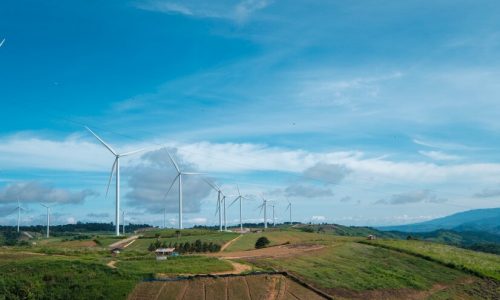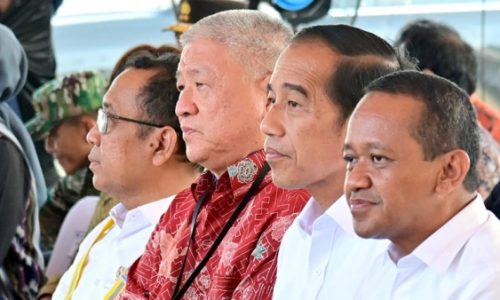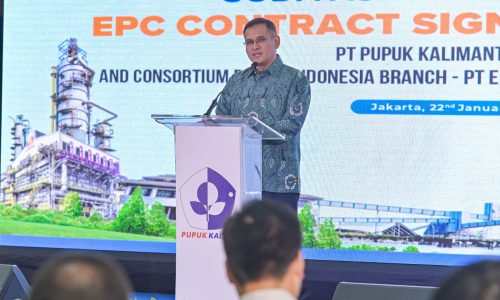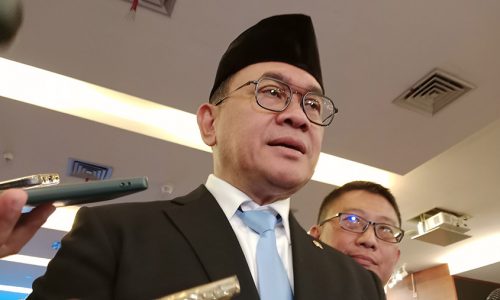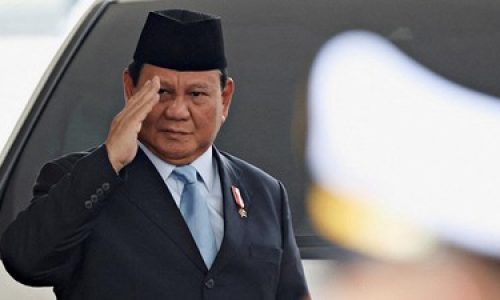Protests broke out in several cities on September 6, 2022, following the government’s decision to raise fuel prices three days earlier. Thousands of workers, grouped under the Labor Party, staged a protest in front of the House of Representatives (DPR)/People’s Consultative Assembly (MPR) compound in Senayan, Central Jakarta.
According to Said Iqbal, the Labor Party president, between 3,000 and 5,000 workers participated in the protest. Meanwhile, thousands of workers in 34 provinces protested in their respective governor’s offices.
“We are requesting the governors to submit a letter of recommendation to the president and the House Speakers requesting to cancel fuel price hike,” he said. The Labor Party also calls for canceling the Job Creation Law and increasing the minimum wage by between 10% and 13% by 2023.
Possibility of national strike
President Joko “Jokowi” Widodo announced the increase in fuel prices for both government-subsidized and non-subsidized fuels on September 3, 2022. The price of Pertalite subsidized fuel increased from IDR 7,650/liter to IDR 10,000/liter. Meanwhile, the subsidized diesel fuel price increased from IDR 5,150/liter to IDR 6,800/liter. The price of non-subsidized fuel Pertamax rose from IDR 12,500/liter to IDR 14,500/liter.
If the government does not lower fuel prices, Iqbal said he would call on a national strike. A nationwide strike is likely to take place between November and December 2022. A stoppage in production could paralyze the national economy, according to him.
“Stop the production, and the economy will be paralyzed. We will ask bus and truck drivers to stop their operations. We will consolidate our power with the students and invite them,” he said.
Near the Bogor Presidential Palace, thousands of students protested the fuel price hike. During the protest, students burned tires in the middle of the road and shouted rejecting the increase in fuel prices.
Hundreds of students stormed the East Lombok regional council building in West Nusa Tenggara and held a peaceful protest. Several councilors welcomed the students in an open forum. Protesters urged councilors to request the president to review his policy of increasing fuel prices.
“Currently, people are queuing for fuel and it is not easy to find a job. As the people’s representative, you should reject non-populist policies. Moreover, ministers are busy increasing fuel prices without caring about the fate of the people at the same time. This is why we came to the regional council to fight for the people’s fate,” the protester said as quoted by local media kicknews.com.
A day earlier, students from Islamic State University Ar-raniry protested the fuel price hike by storming and occupying the plenary sessions room of Aceh regional council. The protests also took place in several other cities, including Makassar, Gorontalo and Flores.
Facing stagflation
Bhima Yudhistira, Director of the Center for Economic and Law Studies (CELIOS), said the fuel price hike happened at the wrong moment. The public was not ready to buy Pertalite fuel for IDR 10,000/liter. He believed the fuel price hike would cause Indonesia to suffer from stagflation, which is characterized by persistently high inflation, high unemployment and stagnant demand.
“Fuel is not simply about energy prices and private transportation costs. It will impact all sectors, such as food shipment as well as fertilizers,” he explained.
As of August 2022, food inflation is reported to be high at 8.55% yearly and is expected to continue to rise. It is estimated that food inflation will reach double digits or above 10% per year in September 2022. Furthermore, general inflation is expected to reach 7% to 7.5% by the end of the year, resulting in an aggressive increase in interest rates.
It is like rubbing salt into a wound for the consumers. If their economy has not recovered from the COVID-19 pandemic, they experienced an increase in living costs and interest rate of their loans.
People who have private vehicles and those who do not have personal cars will reduce their consumption of other goods because fuel is a basic need. The fuel price increase will impact businesspeople in the confectionery, food, beverage and logistics industries. With their demand is still in the recovery phase, they may take shortcuts by conducting massive layoffs.
“We must be realistic. Production costs are increasing, operational costs are growing and demand is declining, so businessmen must cut costs. It is possible that business growth can stagnate, resulting in a contraction in the Purchasing Manager Index of the manufacturing sector,” Yudhistira said.
A social assistance program that can only protect poor people for four months will not be sufficient to compensate the increasing costs of fuel. For example, a vulnerable middle class can afford Pertalite fuel at IDR 7,650/liter, but now the price has risen to IDR 10,000/liter. The social assistance program may not be able to capture the data of the vulnerable poor due to the increase in subsidized fuel prices. Soon, the government must prepare for the chain effects of a significant increase in the number of poor people.
Instead of restricting diesel fuel consumption by large-scale industry, mining and large plantations, the government increased subsidies on fuel prices. In terms of mechanisms, the hike in fuel prices is by far the least creative.
If the price of Pertamax is also increased to IDT 14,500/liter, the main objective of the restriction on subsidized Pertalite consumption will not be achieved. As a result, Pertamax consumers will move to Pertalite.
Alternative solution
Economist Rizal Ramli, on his Twitter account, suggested that the government could adopt alternative policies to increase fuel prices. According to him, the government can do this in three ways rather than raising fuel prices.
Firstly, the government must stop unnecessary expenditures, such as constructing the new capital city. “The government can reduce spending on state institutions like the constitutional court. The court has experienced a fourfold increase in staff and budgets, yet it is not performing well. We need to eliminate the new bodies and staff,” he said.
Secondly, the government may order state-owned energy companies of PT Pertamina and PT PLN to reduce their efficiency by 20%.
“It is not a difficult job as long as they are clean and professional and not indebted to Jokowi,” he stated.
Thirdly, Ramli suggested that the government focus on reducing the amount of interest repaid to the state and total debt.
“There are other ways other than increasing fuel prices since the Jokowi administration is not creative and does not take sides with the people. All they can do is add more debt and raise the price, causing people to suffer,” he said.



